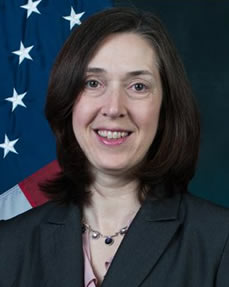
Elizabeth Curds, Director Education Workforce and Income Security
WASHINGTON—Nearly a year after a Government Accountability Office report revealed that the Veterans’ Benefit Administration had been unable to track the quality, accuracy, and timeliness of the outside contractors hired to conduct compensation and pension exams, the agency has made improvements, although many blind spots remain.
The number of contracted exams has quadrupled since 2012 as VA has sought to reduce wait times for veterans seeking benefits. This year non-VA contractors performed 64% of C&P exams at a cost of about $847 million to VA. In January, VA awarded contracts to 12 private firms that are worth up to $6.8 billion over 10 years.
Last year, GAO found that almost all contractors had missed VBA’s quality goal in the first half of 2017 and that data for the second half of 2017 was unavailable because VBA’s Medical Disability Examination program office was understaffed and backlogged. As of January, the MDE office is fully staffed and, according to VA, is up to date on quality reviews of contractors. VBA also has addressed connectivity issues that hampered its oversight of outside vendors.
Now that VBA is caught up with the data, what the agency is lacking is a coordinated way to leverage that data toward long-term improvement in its contract exam process, GAO officials noted at a House VA Oversight subcommittee hearing last month.
“VBA needs to do some planning around how to use all this performance information it’s now collecting,” explained Elizabeth Curda, GAO director of education, workforce and security. “They appear to have a lot more information than they had last year, and that information might be better. But we have yet to see a plan for how they will identify trends across the contractors and across the regions, to dig into the data and do analyses, and use that information to take corrective actions.”
For example, now that VBA has both timeliness information and veteran satisfaction data, an analysis of the two combined should give the agency some insights into how they can proactively address contractor issues, Curda noted.
Despite having far more information than a year ago, the VBA still has some large blind spots. As of 2019, the agency has not been able to fully implement its plan for using its new exam management system, which went online in spring 2018, to calculate contractor timeliness vs. target goals. With no official timeliness scores, VBA has not been able to hand down contract bonuses or penalties to its contractors.
Ongoing technical issues have also prevented VBA from using its new EMS to automatically validate the accuracy of contractor invoices. If an exam is found by VBA to lack data or need correction, contractors are supposed to invoice the second exam at a 50% discount.
“Until the invoicing verification system is in place, VBA will not have a way to verify if that invoicing is being done correctly or the government is being charged correctly,” Curda told the committee.
Another area where VBA has improved over the last year is in its training of outside contractors around the specific needs of veterans. Prior to last year, contractors were self-reporting that they had completed training. This was problematic, considering the low scores many contractors had at the time of GAO’s 2018 review. In response, VBA began conducting random audits of contractor training reports. The agency is also in the process of developing a centralized system to track all contractor training and collect feedback on each course. VBA expects that system to be fully implemented by the end of FY2020.
According to members of the committee, veterans have reported a decrease in wait times but are continuing to express concerns that training for contractors in the veteran and military culture is still insufficient. Veterans also have reported that the location of contractor exams are not being consistently vetted. One veteran reported having a C&P exam conducted in a nail salon. Another had difficulty making their appointment because the building where the exam was to be held did not have a disability access ramp. All C&P exam vendors are required to be ADA-compliant.
Legislators expressed some concern that VBA would get backlogged again once the Blue Water Veteran Act goes into effect in January. The act will give Agent Orange exposure presumption to veterans who served in the coastal waters of Vietnam. As many as 95,000 veterans may be affected by the law.
Mary Glen, MDE deputy executive director, assured the committee that VBA is prepared for that roll-out and the jump in claims it could bring. “We’ve been preparing for that for several months now. We’ve been planning on a daily basis—the entire compensation service. As soon as we found out the Act had passed we notified our contractors to expect a surge.”

